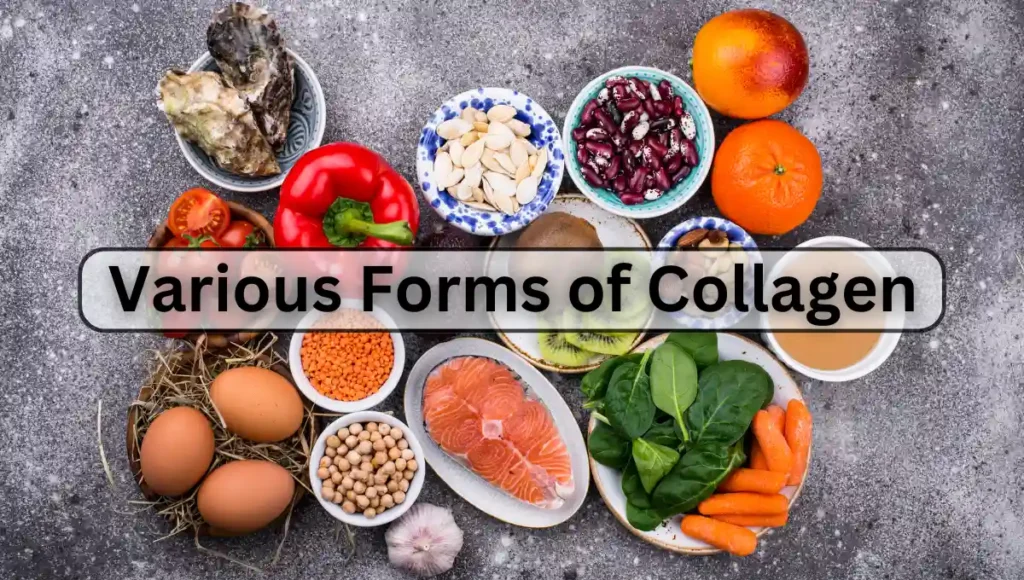The Main Types of Collagen: What You Need to Know
Collagen is the most abundant protein in the human body, playing a pivotal role in constructing our skin, bones, muscles, tendons, and ligaments. The fascination with collagen has transcended medical boundaries, entering the realms of beauty, nutrition, and general wellness. This article delves deep into the different collagen forms, exploring their sources, benefits, and the numerous applications they find in our daily lives.
Understanding the Various Forms of Collagen
Collagen is not a singular entity but comes in various forms with unique properties and benefits. Here, we explore the most prevalent types integral to human health and beauty.
Type I Collagen: The Bedrock of Skin and Bone Health
Type I collagen is predominant in our bodies and is esteemed for its tensile strength and extensive presence in the skin, bones, and connective tissues. It is often sourced from bovine (cow) and marine (fish) origins. It is known for promoting skin elasticity and fortifying bone matrix. Supplements containing Type I are widely acclaimed for their efficacy in enhancing skin appearance and supporting bone health.
Type II Collagen: Crucial for Joint Mobility
Primarily found in cartilage, Type II collagen is essential for joint health and flexibility. Derived from chicken and porcine sources, it is commonly used in supplements to alleviate joint pain and combat arthritic symptoms. Regular intake of Type II collagen can be a game-changer for individuals suffering from joint disorders, offering them a chance at improved mobility and quality of life.
Type III Collagen: The Support System for Muscles and Organs
Type III collagen, often found alongside Type I, is crucial in the makeup of muscles, organs, and arteries. Beef is a primary source of Type III collagen, making bovine-based supplements popular among those seeking to enhance muscular structure and organ health. Its importance in cardiovascular health, particularly in maintaining the elasticity of blood vessels, cannot be overstated.

Innovative Sources and Forms: Marine and Vegan Collagen
While bovine and porcine collagens are common, marine collagen derived from fish offers a highly bioavailable alternative with minimal environmental impact. For those seeking non-animal sources, engineered vegan collagen, developed through yeast and bacteria, provides a sustainable option without compromising the benefits traditionally associated with animal-derived collagen.
At IRM Hospital, we have formally launched a huge pack of services for collagen restoration with the help of advanced stem cells technologies, especially stem cell therapy.
What is Collagen: The Essential Protein Powering Beauty and Health
Collagen’s Role in Anti-Aging and Skincare

The beauty industry heralds collagen as the fountain of youth, largely due to its ability to mitigate wrinkles and boost skin hydration. Skincare products infused with hydrolyzed collagen (collagen broken into smaller peptides) penetrate the skin more effectively, offering rejuvenation and a youthful glow. The market abounds with topical creams, masks, and serums, each promising to harness collagen’s anti-aging powers.
Collagen in Nutrition and Fitness
Beyond beauty, collagen peptides serve as a powerhouse in nutrition, offering a high-quality protein source that supports muscle repair and overall vitality. Fitness enthusiasts often incorporate collagen supplements to enhance muscle recovery and support metabolic health.

Conclusion: Embracing Collagen’s Multifaceted Benefits
The myriad forms of collagen, each with its specific benefits and applications, underscore the protein’s versatility and essential role in health and wellness. Whether through dietary supplements, skincare products, or nutritional regimes, incorporating the appropriate collagen type into one’s lifestyle can lead to significant health benefits.
Angiogenesis: The Vital Process of Blood Vessel Growth and Its Impact on Health




Pingback: What is Collagen: The Essential Protein Powering Beauty and Health - IRM Hospital